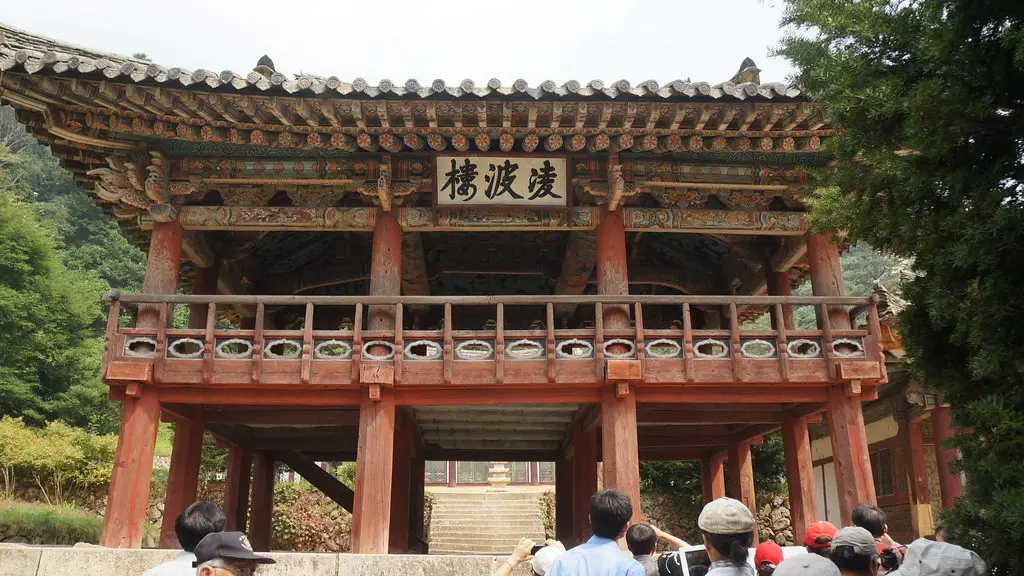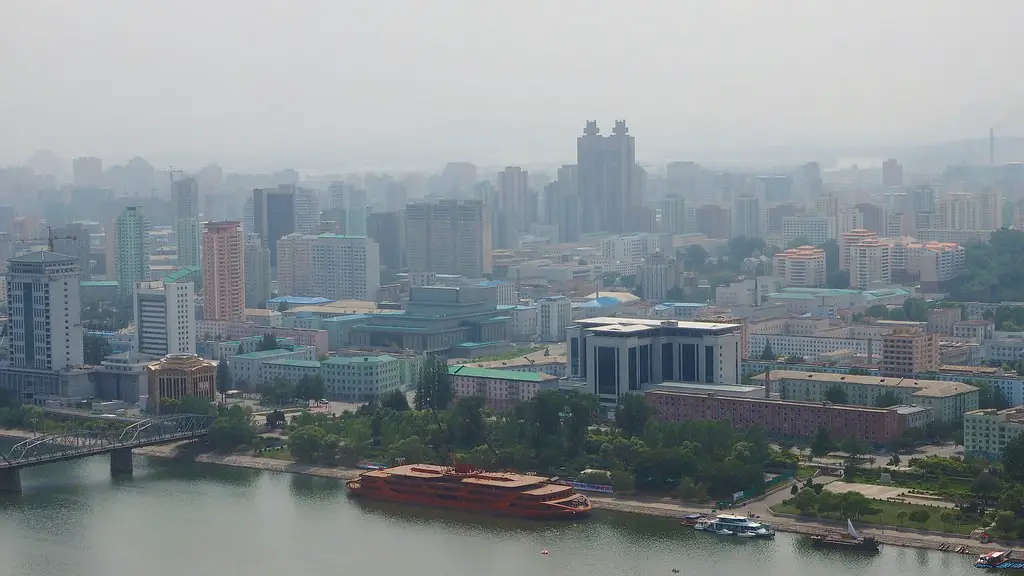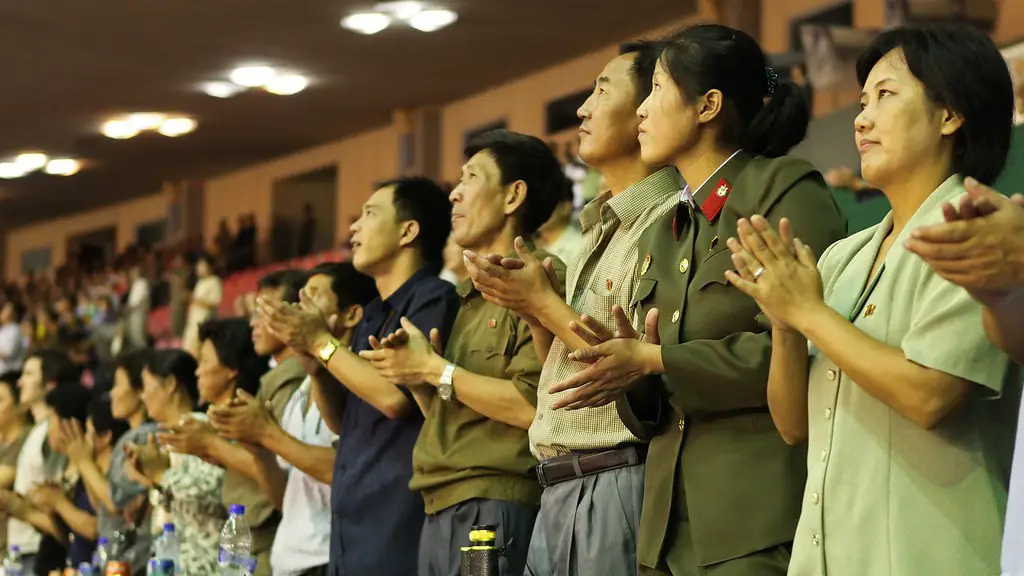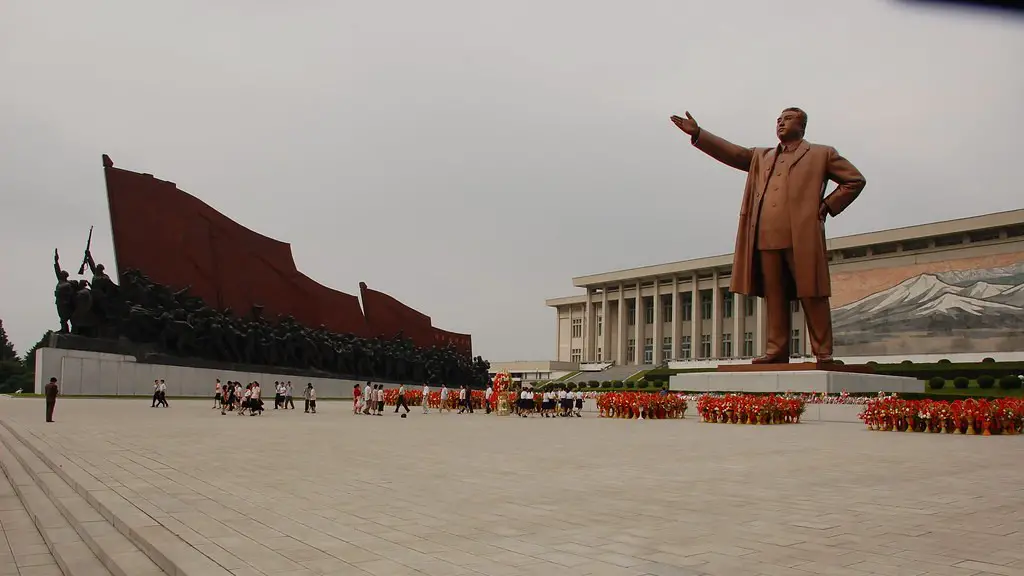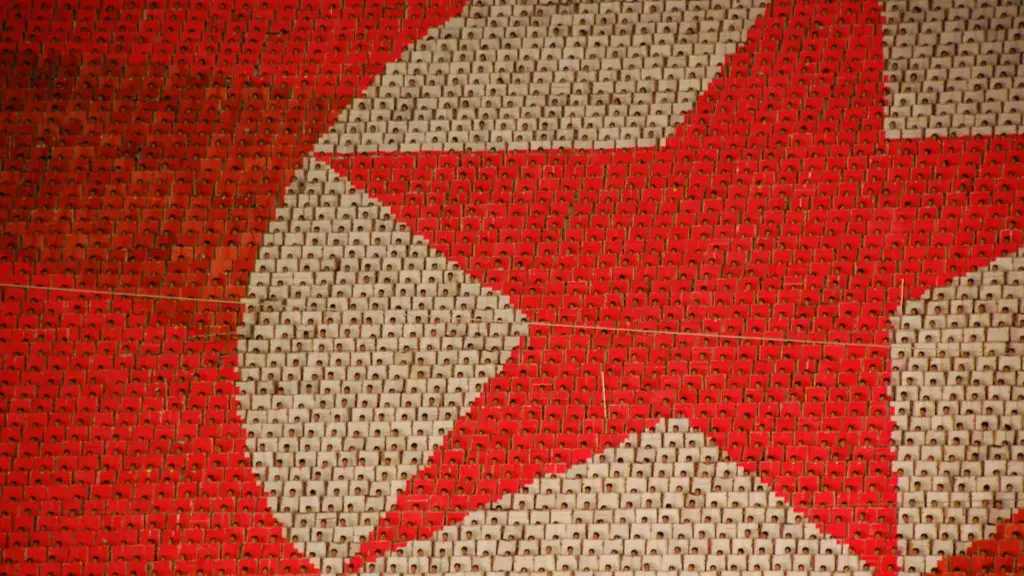How North Korea Establishes Order
North Korea is a highly authoritarian state with a focus on the preservation of public order. The government has long implemented a range of laws and policy initiatives to ensure that all citizens are kept in line and abide by regulations imposed by the ruling elite. This article will discuss the steps North Korea takes to ensure that order is maintained and answer the question, “How Does North Korea Establish Order?”
The backbone of North Korean order is its regime of control. This includes strict rules and restrictions on freedom of movement, speech, and communication. All citizens are subject to strict surveillance and concentrated surveillance in certain areas, such as the capital city Pyongyang. This surveillance is enforced through monitoring technology and checkpoints throughout the country. Additionally, citizens are subject to a system of punishment for any violations of the nation’s laws.
Another way in which North Korea enforces order is through propaganda. State media outlets are highly restricted, and all citizens are inundated with messages from the ruling party. These messages emphasize loyalty and obedience while also chastising any opposition to the existing order.The government also heavily censors all non-state news sources, and any hostile or independent media outlets are quickly silenced.
The North Korean government employs a number of political and social organizations to maintain order. One of these is the Workers’ Party, which is the nation’s ruling political organization and is responsible for policy enforcement and public order. The party is led by a hierarchy of political elites and its members are responsible for disseminating the party’s message throughout the country.
The country also actively encourages its citizens to engage in ideological activities and maintain accepted norms. All education in North Korea is heavily focused on developing loyalty to the party and abiding by its regulations. The government does not allow for any independent thought and only promotes messages that are in line with its own interests. This includes restricting access to the internet and any media outlets outside of the country’s control.
Another tactic employed by North Korea to establish order is through military presence. The country maintains an active military presence and enforces rules with extreme force. This includes the use of public executions for those who violate the nation’s laws or laws imposed by the government. The government also uses its military to suppress any form of public dissent or resistance.
Political Indoctrination
North Korea has a long history of implementing political indoctrination to ensure its citizens remain loyal to the existing order. Political lessons are imposed in school classrooms, while political rallies and mass gatherings are often organized by the government to promote its ideology. Additionally, the state-run media regularly disseminates messages that emphasize loyalty to the government and its policies.
The government also makes use of public welfare initiatives to induce further loyalty to the regime. Citizens are provided with access to housing and health care, and basic necessities such as food and clothing are often provided for free. These benefits are used to encourage submission to the government’s rule and suppress any form of dissent.
Finally, North Korea also relies on its citizens to keep one another in line. Citizens are encouraged to report any violations of the existing order and any actions that could lead to public unrest. Those who do not heed the state’s rules and regulations can expect to face harsh consequences, such as being sent to prison camps.
The Role of Kim Jong-un
The current leader of North Korea, Kim Jong-un, plays an important role in the establishment and conservation of order in the country. He regularly conducts tours throughout the country, during which he inspects the state’s military installations and visited cities to speak with citizens. He also grants interviews and speeches to the media, during which he reassures citizens of the strength and stability of the state and its institutions.
Kim Jong-un also holds a number of military drills to ensure that his forces remain prepared for any emergency. He often issues orders to the military to carry out public safety exercises, which involve large-scale military drills aimed at preparing the army for potential conflict. These drills are also intended to instill a sense of obedience and discipline among the troops.
The leader’s public presence is also highly visible, as he often makes appearances in the media, making speeches and delivering messages. These messages are meant to reassure North Koreans and maintain their loyalty to the state and its institutions. Additionally, the leader is closely associated with the Workers’ Party, and is seen as the protector of the nation and its values.
International Reactions
The international community’s reaction to North Korea’s approach to enforcing order is largely negative. Due to the nation’s heavy reliance on oppressive measures, such as surveillance and punishment, many nations and organizations, such as the United Nations, have expressed concerns about the country’s human rights record. Additionally, the UN has implemented numerous economic sanctions against North Korea for its continued violations of international law and human rights.
Additionally, many nations have expressed alarm over North Korea’s nuclear program and its willingness to conduct dangerous tests and experiments. This has led to a number of diplomatic efforts, such as the Six Party Talks, aimed at addressing the nation’s actions and preventing further nuclear weapons proliferation.
Finally, there have been a series of protests and rebellions against North Korea’s government, particularly since Kim Jong-un came to power. While some of these protests have been violent, the majority of them are peaceful, and involve demonstrations and marches led by human rights advocates and other civil activists.
Impact on Everyday Life
The measures employed by North Korea to maintain order has had a powerful and lasting impact on the daily lives of its citizens. North Koreans are constantly reminded of the government’s authority, and any violation of its regulations can carry serious consequences. As such, citizens have little to no freedom to express any form of dissent or engage in activities outside of the state’s control.
The state’s attempts to indoctrinate citizens have also had a lasting effect, and North Koreans have become accustomed to the state’s ideological messages and continue to obey its rules. Additionally, North Koreans have become largely isolated from the rest of the world, as access to information and media sources is heavily restricted.
The government has also implemented oppressive policies to discourage any form of public gatherings or protests. This includes strict surveillance measures, such as checkpoints and monitoring technology, and harsh punishments for those who are found to be engaging in activities that could lead to public unrest. Additionally, any companies, organizations, or institutions that pose a threat to the government are quickly shut down.
International Efforts to Reform
In recent years, there have been a number of international efforts to improve the human rights situation in North Korea. The United Nations and other organizations have been actively involved in pushing for reforms, including an end to the restrictions on freedom of speech and access to information. Additionally, international aid organizations such as the International Red Cross have been active in providing assistance to North Koreans in need.
Furthermore, the US government has been engaging in diplomatic talks with North Korea in an effort to address issues of nuclear proliferation and human rights. While these efforts have had some success, the US government is still pushing for further reforms in the country. The nation’s response to these efforts has been largely positive, with the North Korean government agreeing to a number of measures in recent years.
Finally, a number of NGOs and human rights activists have been pushing for further reforms, including greater access to information and media outlets and greater freedom of movement and speech for its citizens. While these efforts have made some progress, the country is still far from achieving any substantial reforms, and continues to ensure that public order is maintained through oppressive measures.
Economic System
North Korea’s economic system is heavily reliant on the government in order to maintain order. The nation follows a command economy, which means that the government has substantial control over the production and distribution of goods and services. This has resulted in a lack of competition and innovation, as entrepreneurs are unable to challenge the existing order without the risk of government retribution. As such, the nation’s economy has been stagnant for the majority of its existence.
Furthermore, North Korea relies heavily on international aid to fund its economy, and its citizens are heavily reliant on the government for basic necessities. This increases the government’s control over its citizens, as those who do not comply with its rules are often deprived of services or goods. Additionally, the nation is highly reliant on other nations for resources, as its economy cannot produce enough goods and services to sustain itself.
Finally, North Korea is highly isolationist and is unlikely to open its economy up to foreign investment or influence. North Korea’s government has done a number of stepsto ensure that the nation can sustain its economy and remain economically independent, meaning that it is likely that the nation will remain reliant on its own resources and remain under complete government control.
Conclusion
North Korea is a highly authoritarian state that relies on a range of oppressive measures to ensure public order is maintained. The government uses surveillance, punishment, indoctrination, and military presence to keep its citizens in line. Additionally, the government actively encourages its citizens to report any violations and maintain accepted norms. The international community has been actively involved in trying to push for reforms, and there have been a number of efforts to improve the human rights situation in the country. However, it is unlikely that the nation’s order will be changed anytime in the near future.
